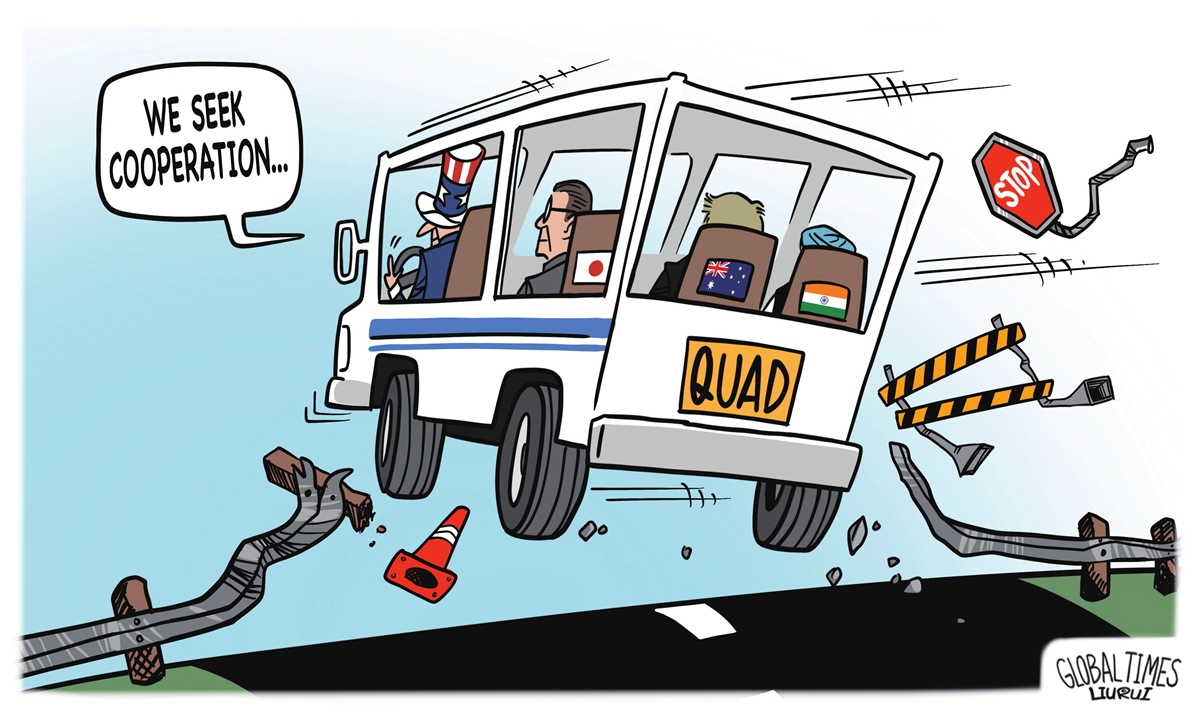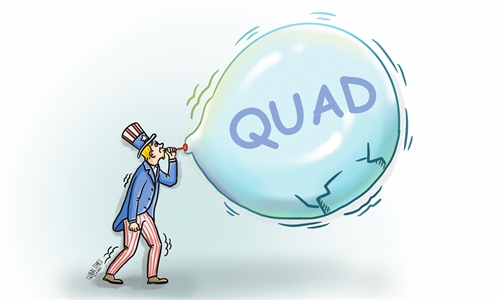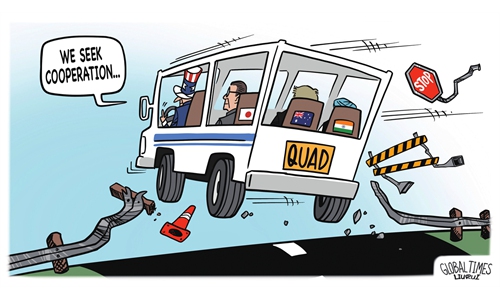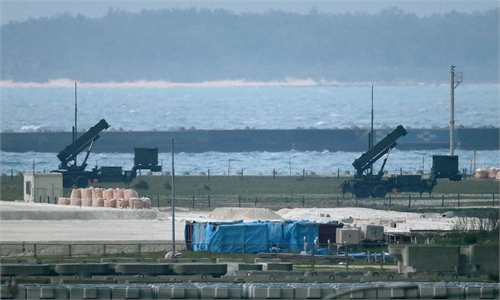
Quad Photo: Liu Rui/GT
The US is set to host the Quad summit this weekend in US President Joe Biden's hometown, with the White House saying that China-related issues will be high on the agenda.
Analysts viewed the Quad summit as an effort to cement the Biden administration's legacy in terms of the US' strategic competition with China in the Asia Pacific. However, regarding the diverging strategic interests among Quad members and their close economic bonds with China, the mechanism faces uncertainty in terms of its ability to endure the US game of creating division and confrontation.
According to media reports, Biden is expected to host leaders of other Quad members in his hometown of Wilmington in Delaware on September 21, with the attendance of Indian Prime Minister Narendra Modi, Japanese Prime Minister Fumio Kishida, and Australian Prime Minister Anthony Albanese.
For two of the four leaders, Biden and Kishida, this will be their final Quad summit as both will be ending their terms.
Li Haidong, a professor at the China Foreign Affairs University, told the Global Times that the summit carries a note of farewell, indicating a hope that the Quad summit, a legacy of the Biden administration, will endure and develop.
For the US, the Quad is a mechanism designed around strategic competition against China by drawing a small bloc, and a tool to create turmoil and division in the Asia-Pacific region and disrupt the existing close ties among regional countries, as well as a way to push Asia-Pacific countries to become more dependent on the US in terms of security, Li said.
But India, Australia and Japan have their own considerations, analysts noted. "Although India, Japan and Australia have strategic integration points with the US, they also have economic integration points with China," Li noted. "Such a divisive pattern will be difficult to change for a long time, which means that the US' attempts to promote division and confrontation in the Asia-Pacific through QUAD faces a lot of uncertainties in the future."




